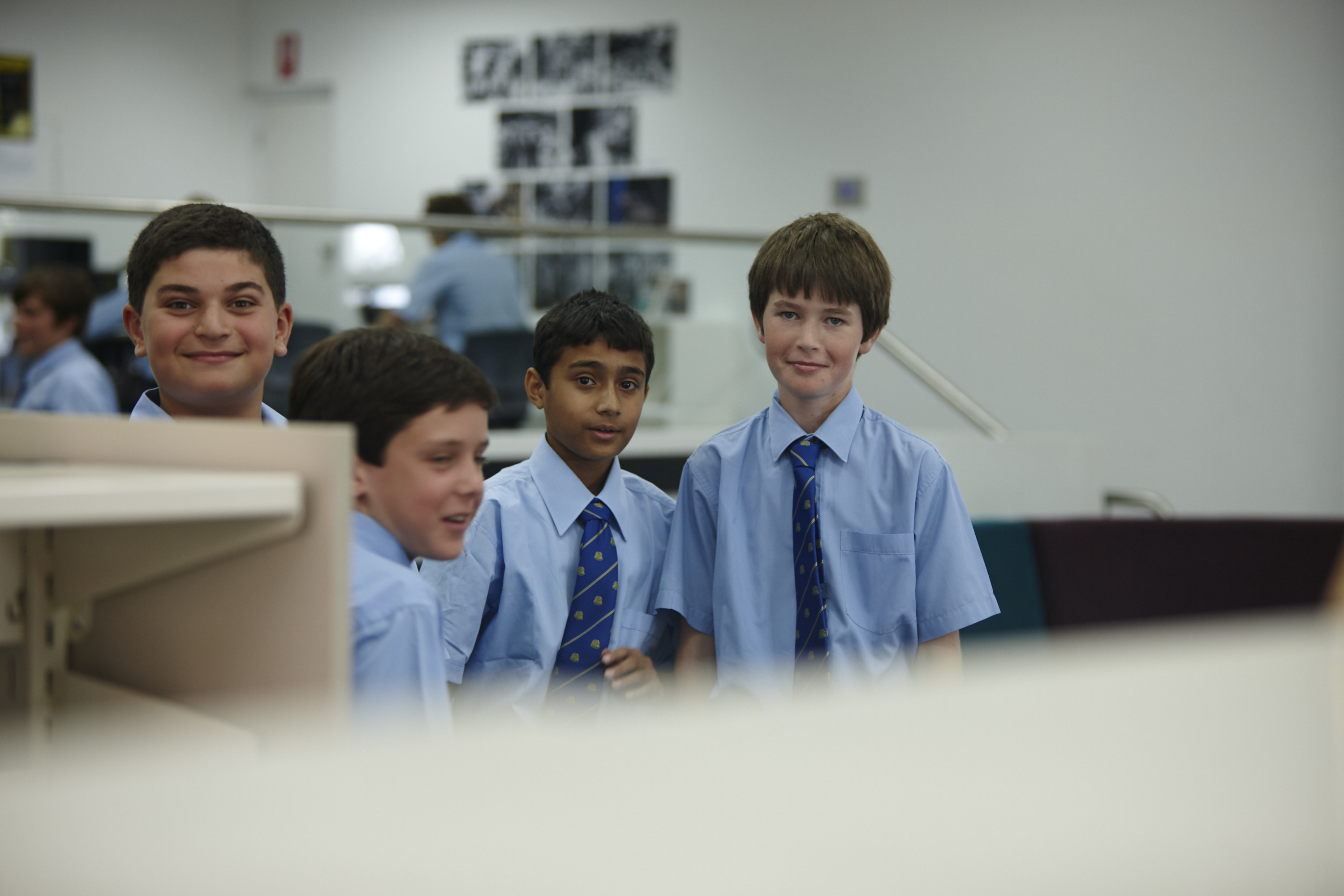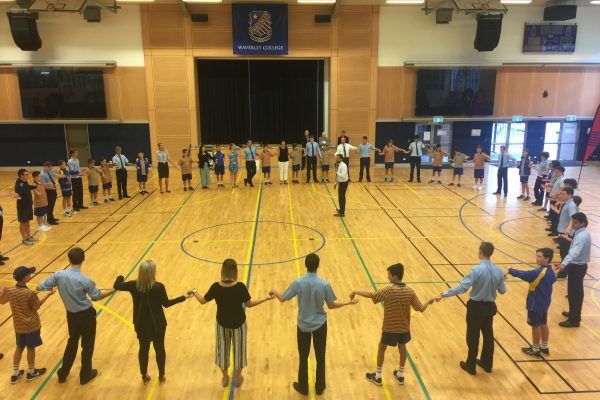
From the Director of Student Wellbeing, Matthew Porter
On Wednesday morning we welcomed the new Year 5 and 7 boys into the Waverley College community. The excitement, nerves and anticipation were clear for all to see as the boys geared up for their first day of school. Their families looked on with part relief that the long holidays were over, and part anticipation, and perhaps apprehension – all normal, healthy emotions, and a sign that our sons are growing up. One day, in the not too distant future, it will be their turn to act as a Year 12 mentor to another new Waverlian.
All Year 7 students were paired with a Year 12 “Big Brother” and met their Wellbeing Mentor and Head of House. They spent the morning navigating the school grounds, coming to terms with the nuances of a 10-day timetable and familiarising themselves with the College routines and practices. Each boy will have the same Wellbeing Mentor and the same Head of House until the end of Year 12. These longstanding relationships are one of the cornerstones of the new Wellbeing model at Waverley College.
A new school year means a fresh start for all of our students, regardless of their year level. A nice long summer break provides a welcome opportunity for them to re-evaluate their priorities and set new goals and challenges for the year ahead.
Here are some tips to help your son seize the momentum and springboard into a truly fantastic 2018.
Commit to your child going to school every day, on time
Open channels of communication with your son’s school, his friends and his friends’ families. Andrew Fuller, in his 2017 College presentation, discussed the importance of a “trio of care” around the individual. This consists of the peer group, the home environment and the school. Together is better!
Help kids start each day well
A good night’s sleep, a healthy breakfast and some words of encouragement will help set a positive tone for a day of learning. This may mean that you adjust your morning routine so that kids have plenty of time to get up, eat and get ready for the day ahead without having to rush.
Establish work & study habits
The most successful students are those who develop regular study habits that suit their lifestyle and learning style. Establish a regular work routine that fits in around sporting commitments, family routines and chores. The key to all things is moderation. Do a little bit and do it often. This is far more effective than the feast and famine or cramming study style which occurs far too frequently in male adolescents.
Make sure your child gets enough sleep
Far too many young people are sleep-deprived, which has a negative impact on their well-being, mood, concentration, energy levels and immune system. A good night’s sleep consolidates memory and aids concentration, assisting future learning. We should aim for 8-10 hours sleep as a minimum, more in younger students. Have a regular bed-time and get-up time each day. Aim for a 45-minute wind-down time each night and remove screens and mobile phones from bedrooms.
Get your kids outside more for good physical and mental health
With our reliance on technology, children today get far less exercise than those of past generations. National Physical Activity Guidelines recommend a minimum of 60 minutes of exercise per day for children and adolescents. Where possible, role model healthy behaviours and positive physical activity patterns. Consider increasing your child’s green time and decreasing screen time for good physical and mental health.
Focus on being friendly
Schools are very social places requiring kids to negotiate many different social situations each day. Encourage kids to be open and tolerant; to be friendly; to be involved in plenty of activities and to seek opportunities to establish new friendships. Teach empathy, encourage them to keep an eye on others and extend a helping hand to those in need. Talk to your son about how to manage disagreements and challenging situations without letting their emotions get the better of them.
Develop self-help skills
Adolescence is a challenging life stage. Knowing where, when and how to access appropriate support is an essential step in navigating the pitfalls of male growth and development. Self-awareness is the first step in self-management and self-care. Knowing when we are at our best and when we feel great makes it so much easier to identify when things may be getting on top of us. This will also enable us to bounce back from setbacks or adversity more readily. Know where to turn to for help, and remember to keep an eye out for your friends.
A comprehensive list of resources is available in the A-Z Wellbeing section of the student diary.
Term 1 is a fantastic time to break some old habits and establish new ones. We look forward to working closely with all of our Waverley families and helping your sons get the most out of 2018.

Lacey House Mentors, Year 7 and Year 12 students getting to know each other.



